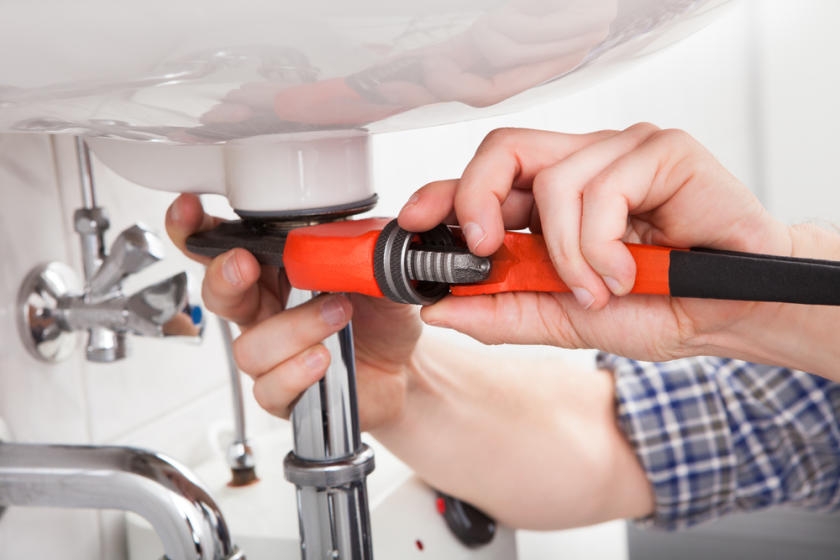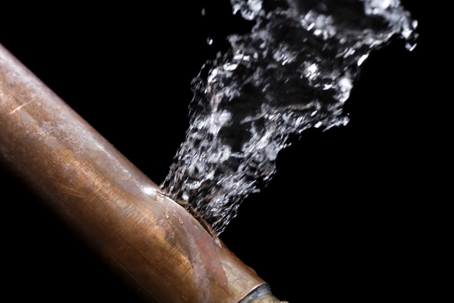Urgent Repair Tips to Apply Until Expert Help Arrives
Urgent Repair Tips to Apply Until Expert Help Arrives
Blog Article
Here underneath you can discover some brilliant insight in regards to Expert Tips for Managing a Plumbing Emergency Until Help Arrives.

Plumbing emergencies can strike at any moment, creating stress and anxiety and potential damage to your home. Whether it's a burst pipeline, a stopped up drainpipe, or a dripping faucet, knowing how to handle the circumstance up until a specialist plumbing professional arrives can save you from further problems. This short article supplies necessary emergency situation pipes suggestions to assist you reduce damage and gain back control throughout a pipes situation.
Turn Off the Water Supply
The first step in any plumbing emergency is to shut off the water system. For local problems, such as a dripping faucet or bathroom, turn off the valve near the fixture. When it comes to a significant leakage or ruptured pipeline, find your home's main water shut-off valve and turn it off immediately. Knowing the area of these shutoffs in advance can save important time during an emergency situation.
Shut down Your Hot Water Heater
In particular emergency situations, such as a burst pipe, it's wise to shut down your hot water heater. This stops overheating or damages to the system when water stops streaming. Turn off the power supply to the water heater (electric or gas) and let it cool to stay clear of possible dangers.
Briefly Quit a Burst Pipe
A burst pipeline can bring about substantial water damages in minutes. To reduce the issue:
Call an expert plumber promptly to deal with the problem completely.
Have an Emergency Pipes Kit
Prepare a standard plumbing emergency situation set to handle small issues successfully. Your kit needs to include:
Having these tools accessible can make a significant distinction in your ability to take care of emergencies.
Unclog Drains Securely.
A clogged drainpipe can be an aggravating and messy problem. Here's just how to tackle it:.
If these approaches don't function, avoid utilizing too much force, as it might get worse the obstruction.
Manage Overflowing Toilets.
An overruning toilet can trigger prompt chaos. Right here's what you need to do:.
Address Small Leaks with Short-term Solutions.
Tiny leakages can promptly become significant problems if left unchecked. Use these temporary fixes until specialist aid shows up:.
While these solutions aren't long-term, they can assist lessen water loss and damage.
Deal With Frozen Pipes Carefully.
In cooler environments, frozen pipes are a common emergency situation. If you believe an icy pipe:.
Know When to Call a Specialist.
While quick fixes can assist temporarily, particular pipes problems require prompt expert attention. Call a plumber if:.
Without delay calling a professional makes sure the concern is solved correctly and stops further issues.
Prevent Additional Damages.
Taking quick activity to reduce damages can save you money and time in the long run. Right here's how:.
Final thought.
Pipes emergencies can be frustrating, yet with the best understanding and devices, you can manage the circumstance properly until assistance gets here. By turning off the water system, resolving small leaks, and utilizing short-lived fixes, you can reduce damages and maintain your home safe. Remember, these suggestions are momentary remedies; always speak with a certified plumbing professional to take care of the root cause of the trouble. Preparation and quick thinking are your finest allies in any type of pipes emergency situation.
8 Helpful Tips for Managing Plumbing Emergencies at Home
If your plumbing system hasn’t failed once, wait for it because almost everyone has a story to tell. Sometimes, it could be simple emergencies such as a leaking pipe, a blocked cistern, or even a big burst pipe. In situations like this, you need to have some handy tips to save you some money and from possible damages.
Take care of minor issues early.
Sometimes, you could have avoided an emergency by taking proactive measures while it was still early. Some major plumbing emergencies can be a result of an ignored minor issue. We recommend that you have items like plumbing tapes and other related items. A plumbing tape can allow you to manage minor leaks before the plumber arrives.
Cut off the water supply.
This tip is essential in almost any type of leakage problem. For problems like minor leakages in the toilet or kitchen, turn off the supply that takes water to the affected pipes. If the leakage is a major pipe, you must shut off the supply valve to the entire building. This will help you avoid flooding your home and neighbors if you share a flat.
Know your plumbing system
Folks typically move into a new apartment without understanding the water supply around the building. This can prove disastrous if a water emergency arises and the plumber is far away. The previous tip will prove useless if you don’t practice this one. More importantly, know where your water shut-off valve is located – you’ll need that knowledge to prevent potential home floods.
Have some common handy tools
There are lots of plumbing emergencies that you can handle without hiring a plumber. That’s why you must keep some tools available always. Some tools that you can use to fix simple plumbing emergencies easily include plumbing tapes, screwdrivers, thread seal tapes, plungers, pliers, tape measures, and rubber gloves.
Insulate your pipes from cold
You’ll save yourself from many plumbing expenses if you protect your water pipes from the cold. This is because of the harmful effects that cold weather can have on your pipes. During winter, your pipes can burst from being overly expected to freezing temperatures. So, make sure insulators are there to keep the pipes working correctly.
Avoid practices that will clog your toilet.
Many people indulge in practices that can damage the plumbing system of the entire building. One of these is when they use their toilet to dispose-off garbage. They flush all kinds of things, such as paper towels, bandages, hairs, female sanitary products, etc., down the toilet. This will block your toilet in the long run, incurring unnecessary expenditures. Dump such waste in the trash instead.
Check your dials regularly.
Sometimes, there could be leakages in your home without noticing them in time. So, constantly monitor your water meter dial. If the dial is reading when there is nobody using water, this is an indicator that there is leaking. Check for leaks immediately. Call a plumber as soon as possible if you can’t find any.
https://www.constructionplacements.com/8-helpful-tips-for-managing-plumbing-emergencies-at-home/

As an enthusiastic reader on What to Do During a Plumbing Emergency, I think sharing that excerpt was a smart idea. Are you aware of somebody else who is curious about the topic? Please feel free to promote it. Thanks for your time invested reading it.
Call Today Report this page